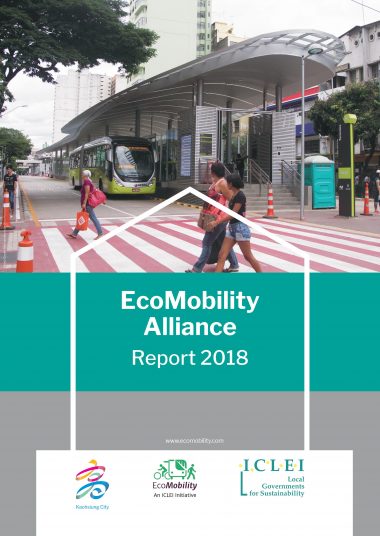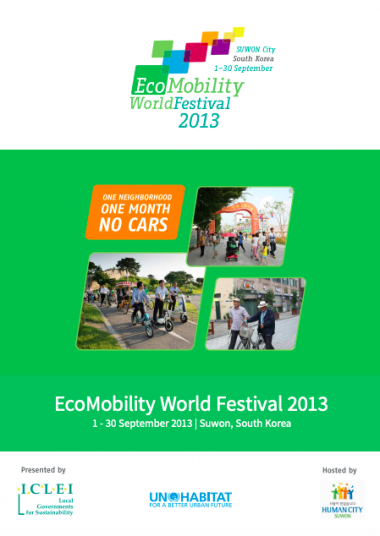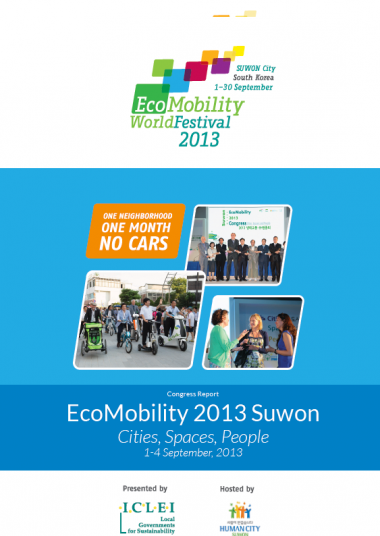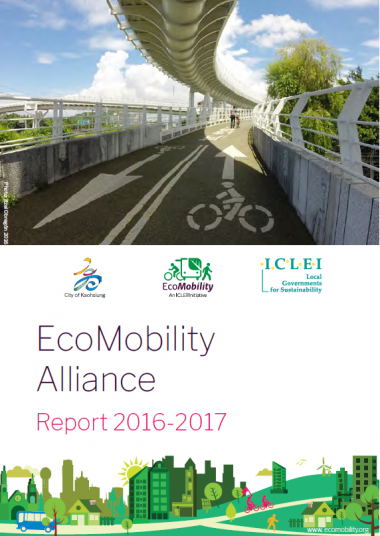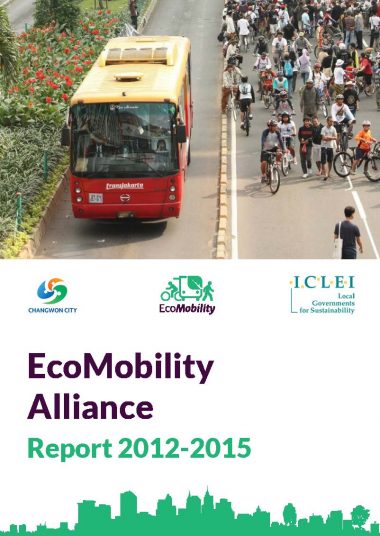Suwon, a major industrial and cultural hub neighboring the capital city of Seoul, is well-known for its UNESCO Cultural Heritage Hwaseong Fortress. This year marks the fifth anniversary of the first EcoMobility World Festival ever organized. Suwon’s primary motivation in hosting the Festival was to rejuvenate the deteriorating conditions of the old city center through ecomobility. When the idea of one-month of no cars was communicated to the public, the city was faced with protests by opposition. Through a series of engagements, the Citizen’s Steering Committee for EcoMobility was formed. Members of this committee eventually became the mouthpiece for the city, advocating for why ecomobility should implemented throughout the city. Now, they are the core mobilizers of all the annual car- free days.
Before the Festival, the city invested heavily in the “Urban Regeneration Project” to create pedestrian-only streets, gardens and public space. This project beautified the façades of buildings used art to drive creative placemaking. Because of the noticeable change, visitors to the otherwise neglected area almost doubled. Pedestrian-only streets attracted more people to walk and shop at the local stores, generating 90 million USD in commerce, roughly equating to 1,500 jobs created throughout the 2-year preparation.
The 2013 Festival inspired more changes throughout the city. More car-free streets were demarcated in 20 districts by 2018 and overseen by the EcoMobility Bureau, which is another legacy of the Festival. This Bureau works to enhance ecomobility in the city and organizing yearly car-free days. Since the Festival, the city strengthened the culture of public participation through more town hall meetings where the residents could provide feedback to the administration’s policies and initiatives.
In celebration of the fifth anniversary, the city organized the 5th Anniversary of the EcoMobility Festival with Haeggung-dong residents. The event was to celebrate the progress in ecomobility for the past five years, to appreciate residents for participating at the Festival 2013 and to highlight the importance of ecomobility in the future. About 300 residents, visitors, youths and public officers participated in the “Together, EcoMobilier*?” parade and a ceremony officiated by the mayor. A Sustainable EcoMobility Village Forum was organized with civil society and residents to reflect how Suwon can further reduce dependency on cars. The celebration of the 5th Anniversary of the Festival shows how committed Suwon is to ecomobility.
* A phrase created by Suwon to denote people supportive of EcoMobility
